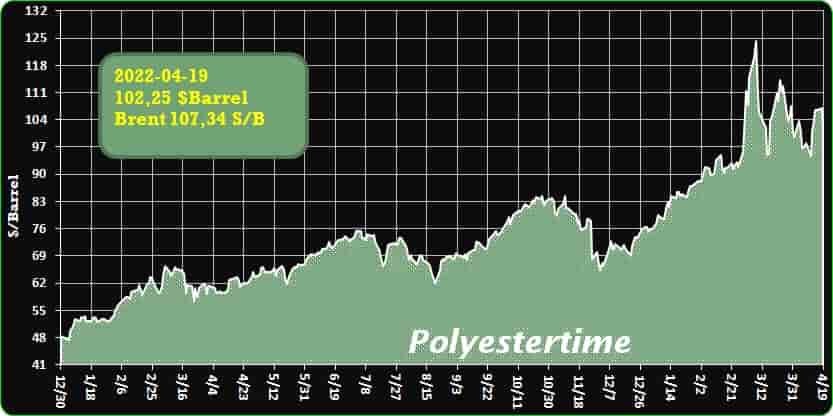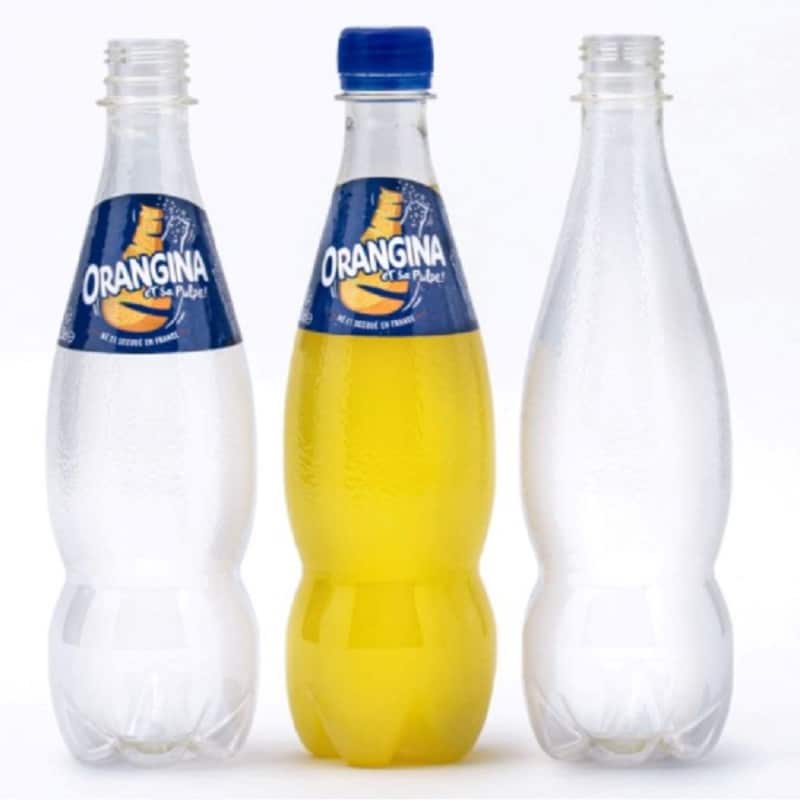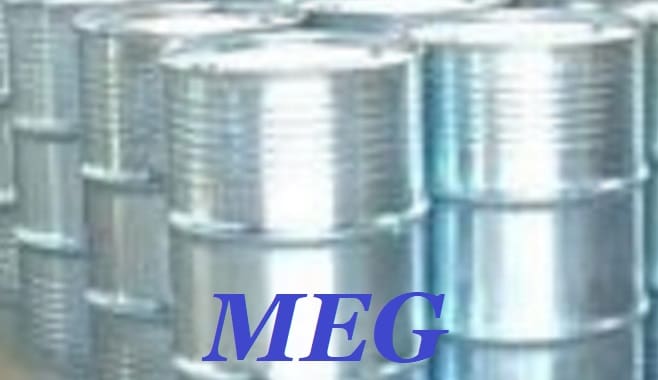Plant-Based-Plastic – Textile-waste 19-04-2022 - Arhive
Plant-Based-Plastic – Textile-waste
Crude Oil Prices Trend

-Suntory Announces 100% Plant-based Plastic Bottle Prototype
Grocery store shelves are filled end-to-end with single-use plastic packaging. Shoppers, whether they like plastic or hate it, have few better alternatives. However, Suntory, makers of drinks like Orangina and spirits like Jim Bean, recently announced a successful 100% plant-based PET bottle prototype. This is encouraging news considering the many issues associated with plastics.
The vast majority of plastics are made from petroleum products. Not only is petroleum a finite resource but extracting it produces pollution and releases greenhouse gases. Unfortunately, because very little plastic is recycled, most manufacturers make their bottles from virgin petroleum-based plastic.
Plastic does not biodegrade. Instead, it breaks down into microplastics that end up in drinking water, seafood, and even the air. In addition to the potential human health risks that these plastic particles pose, marine animals that mistakenly eat microplastics are also at risk. Plant-Based-Plastic – Textile-waste
Although some smaller companies are trying to make sustainability improvements for packaging, Suntory’s announcement is particularly encouraging because the large multinational corporation has numerous product lines. Suntory has committed to “100% sustainability” in packaging by using either recycled or plant-derived materials for plastic beverage bottles by 2030.
The plant-based PET bottle prototype is an indication that Suntory is marking progress towards this important target. Other companies are likely to follow Suntory’s example, potentially creating a ripple effect throughout the food and beverage industry. In particular, Coca-Cola has been under considerable scrutiny because it is the #1 plastic polluter globally.
Will the plant-based bottle contribute to food insecurity?
Although there are some advantages to bioplastics, one ongoing concern is that using corn, sugar beets, sugar cane, and other feedstock could contribute to food insecurity. However, the Suntory plant-based bottle was created in partnership with Anellotech, a U.S.-based sustainable technology company that uses non-food feedstock. According to Suntory, this prototype is critical for realizing its 100% sustainable bottles target by 2030. The company reports that its plant-based plastic is comprised of two raw materials: 70% terephthalic acid (PTA) and 30% mono ethylene glycol (MEG). Plant-Based-Plastic – Textile-waste

The market inches up in the afternoon. Offers for H2 Apr cargoes are at $643-645/mt, bids at $640/mt and discussions at $640-643/mt. Deals are concluded at $638-640/mt. Offers for H1 May cargoes are at $650-651/mt, bids at $640-645/mt and discussions at $645-650/mt. Plant-Based-Plastic – Textile-waste

-Suntory Announces 100% Plant-based-Plastic-Bottle Prototype
–MEGlobal announces ACP for May-2022-MEG
–Brazil is against BRICS-payment-system as requested by Russia
–CATL invests in $6 billion battery-project to manufacture, recycle, and mine-material-in-Indonesia
–China prepares its back, Chinese energy giant CNOOC sells all its assets in North-America
-China aims to recycle 25% of textile-waste, hike recycled-fibre output
Plant-Based-Plastic – Textile-waste
